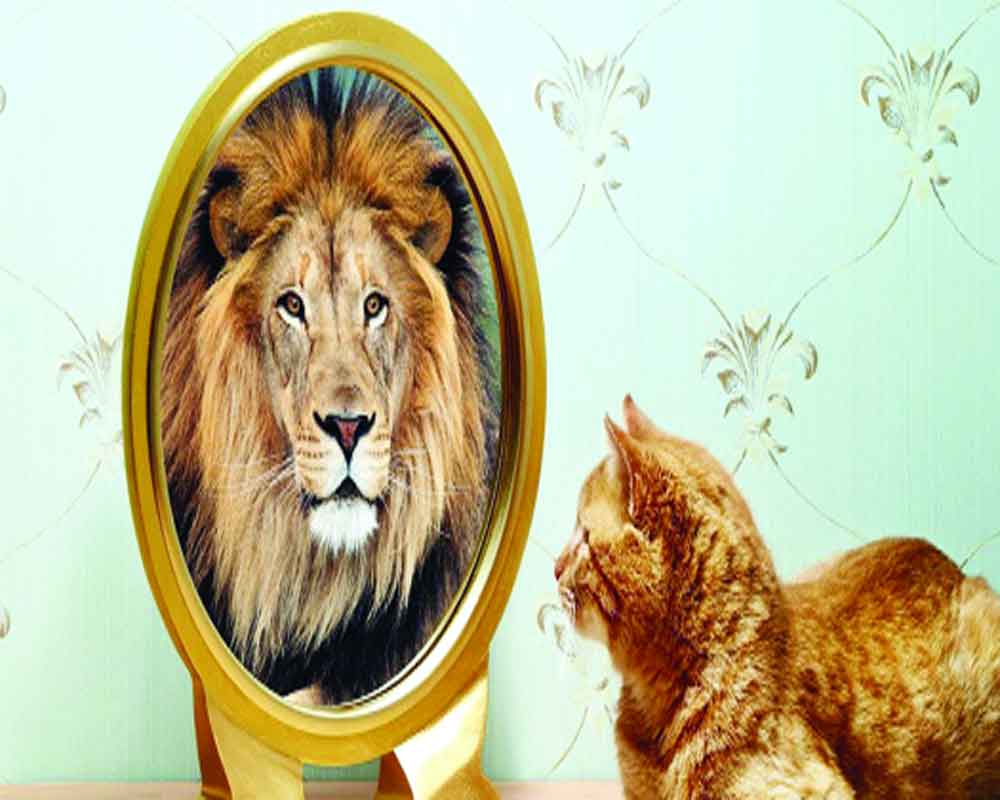I am wiser than this man, for neither of us appears to know anything great and good; but he fancies he knows something, although he knows nothing; whereas I, as I do not know anything, so I do not fancy I do. In this trifling particular, then, I appear to be wiser than he, because I do not fancy I know what I do not know. This is attributed to Socrates by Plato.
Psychological research shows that we are not very good at evaluating ourselves accurately. In fact we frequently overestimate or underestimate our own abilities. This has led us to understand the Dunning-Kruger effect.
One day in 1995 a man robbed two Pittsburg banks in broad daylight. He did not wear a mask or any sort of disguise and he smiled and waved at the surveillance cameras before walking out of each bank.
It was so easy for the police to find the man because his pictures were clear in the cameras—later that night they arrested him. When he was arrested the robber was very puzzled—“but I wore the lemon juice” he said—“how could they catch me?”
He thought –in fact he was confident that rubbing lemon juice on his face would make him invisible to the bank cameras.
His rationale to this theory was that the chemical properties of lemon juice are used in invisible ink then they would make him invisible too-- to the bank security cameras. He refused to believe that the pictures in the cameras were his –and said that they were fake.
This made the two social psychologists Dunning and Kruger study this story—they were surprised at the confidence this robber had when he insisted that the pictures in the cameras were not his as he was overconfident that he was invisible to the cameras because he had rubbed the lemon juice on his face.
The Dunning-Kruger effect named after David Dunning and Justin Kruger of Cornell University, occurs where people fail to adequately assess or acknowledge their inadequacy in a particular subject or task or their level of competence or more specifically speaking, their level of incompetence in a particular task and thus they consider themselves much more competent than they are or from everyone else.
This lack of awareness in them is attributed to their lower level of competence which steals their ability or skill to critically analyse their performance. This leads them to significantly overestimate themselves or their performance. In simpler words it's "people who are too ignorant or dumb to know how ignorant they actually are".
The inverse of this also applies-- the very skilled or expert and competent people tend to underestimate their ability compared to others; they think that the others have performed equally well as they too are as competent as them.
However the impostor syndrome is a psychological pattern in which an individual doubts his or her accomplishments and has a persistent internalised fear of being exposed as a "fraud". Impostor syndrome is a feeling experienced by people who have succeeded at something, when they tend to believe that it was just plain good luck or a chance that lead to their success and not their abilities. This helps us to understand the Dunning-Kruger effect, which we often explain as the opposite of the imposter syndrome.
The Wikipedia states that in the field of psychology, the Dunning–Kruger effect is a cognitive bias in which people mistakenly assess their cognitive ability as greater than it is. It is related to the cognitive bias of illusory superiority and comes from the inability of people to recognise their lack of ability.
It also refers to a lesser extent, for high performers to underestimate their abilities.
“The fool doth think he is wise, but the wise man knows himself to be a fool,” says Touchstone in William Shakespeare’s As You Like It.
The Dunning-Kruger effect principle is explained by the common saying that "I've learned enough to know what I don't know." That means that someone who hasn't mastered knowledge or does not know much about a subject would have no knowledge as to how much there is to learn about it, and so he can easily overestimate his level of performance or understanding.
In an experiment psychologists found that the least professional or least competent students dramatically overestimated their ability and performance because it was found that the skills they lacked were the same skills they required to recognise their incompetence. Some people just think they know everything about everything that is being done or spoken about. They exaggerate their abilities. The less a person knows about an activity the more likely they are to overestimate their skill or knowledge. Such people usually lack self- awareness and cognitive competency due to which they are not able to judge their capabilities.
This phenomenon analysed by Dunning and Kruger in 1999 is about illusory superiority. They experimented and said when people lack knowledge and skill in particular areas—they suffer double. Firstly—they make mistakes and take poor decisions and secondly the same knowledge gaps which they have in their abilities prevent them from catching or knowing their errors.
This means that such poor performers also lack the skills to understand how badly they are performing. They visualise themselves as better than others and tend to rate themselves better in many diverse fields like leadership,health, ethics, driving, singing etc. Those with the least ability are most likely to over rate their skills to the greatest extent—so they are most vulnerable to this delusion.
This may hold true for most of us because we may have pockets of incompetence in us which we do/may not recognise.
It is important to understand that this phenomenon is not due to our ego which blinds us to our deficits, but people under its effect—are ready to admit their deficits—once they spot or come to know of them.With moderate capabilities people know that they don’t know enough and experts know that they are knowledgeable but they assume that others too are knowledgeable.
The result is that people whether they are inapt or highly skilled are often trapped in inaccurate self perception. When they are unskilled they cannot see their own faults and when they are exceptionally competent they do not realise how unusual their abilities are.
There are some symptoms seen in people who suffer from Dunning-Kruger effect.
I am too intelligent syndrome—they over estimate their skill set. They feel they have a lot of knowledge –more than the others in the field.
They cannot observe or appreciate the skills or talent of others. They feel that the others have no skill set or capabilities.They feel they are always right and never accept their mistakes. They feel whatever they have said or done is always correct and they can never be wrong.
This Dunning-Kruger effect can affect your behaviour, learning power and decision making skills.
The challenge today is that many of us are victims of this effect. We can be expert in one field but it’s not essential that we are experts in all the fields we encounter. How do we save ourselves from falling into the trap of this effect or come out of it? How do we know how good we actually are?
For this, one should keep learning and practicing newer skills and keep on improving skills—cognitive and others. Instead of focusing on what you feel you know—focus on newer learning areas—the more competent we are the lesser holes there will be in our competence.
Instead of self analysing your skills and knowledge get a feed-back from others about what they think of your skills.
Then you can improve upon them—ask for feedback from other people and consider it, even if it is hard for you to hear. Say no to your ego in your journey of self-realising your self-worth and knowledge.
(The author is a neuro psychologist and CBSE designated counsellor)


























